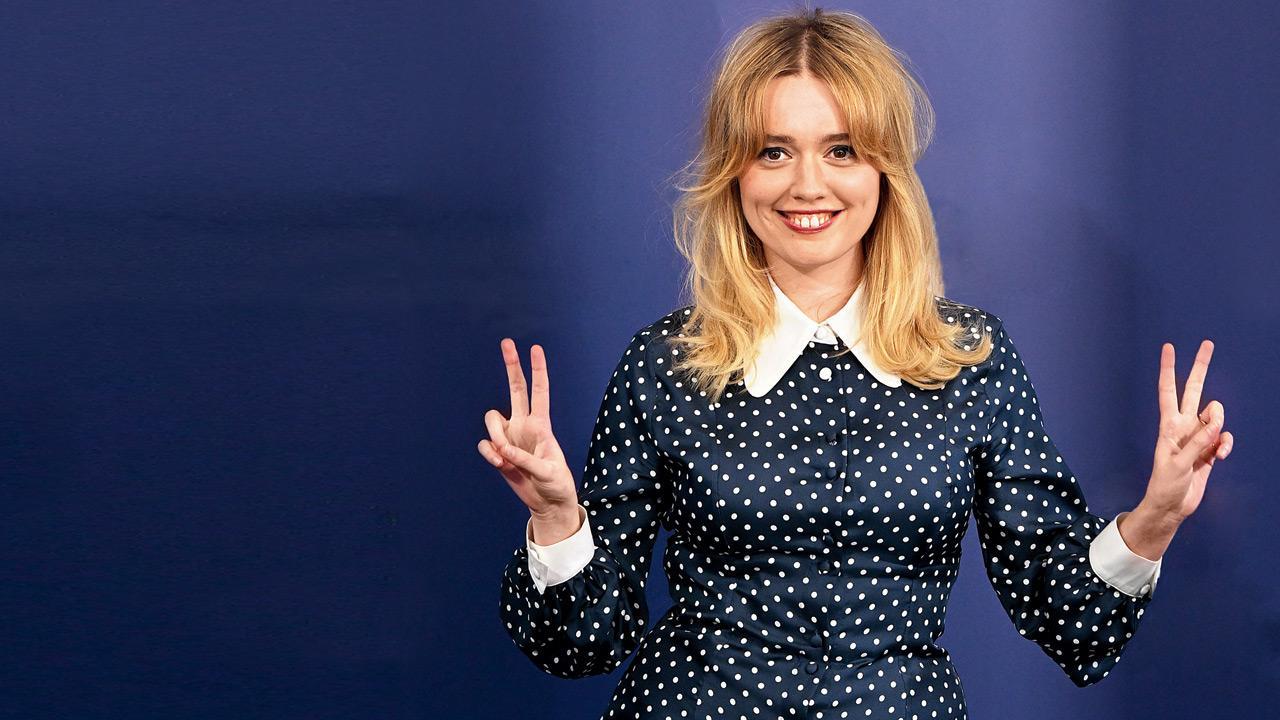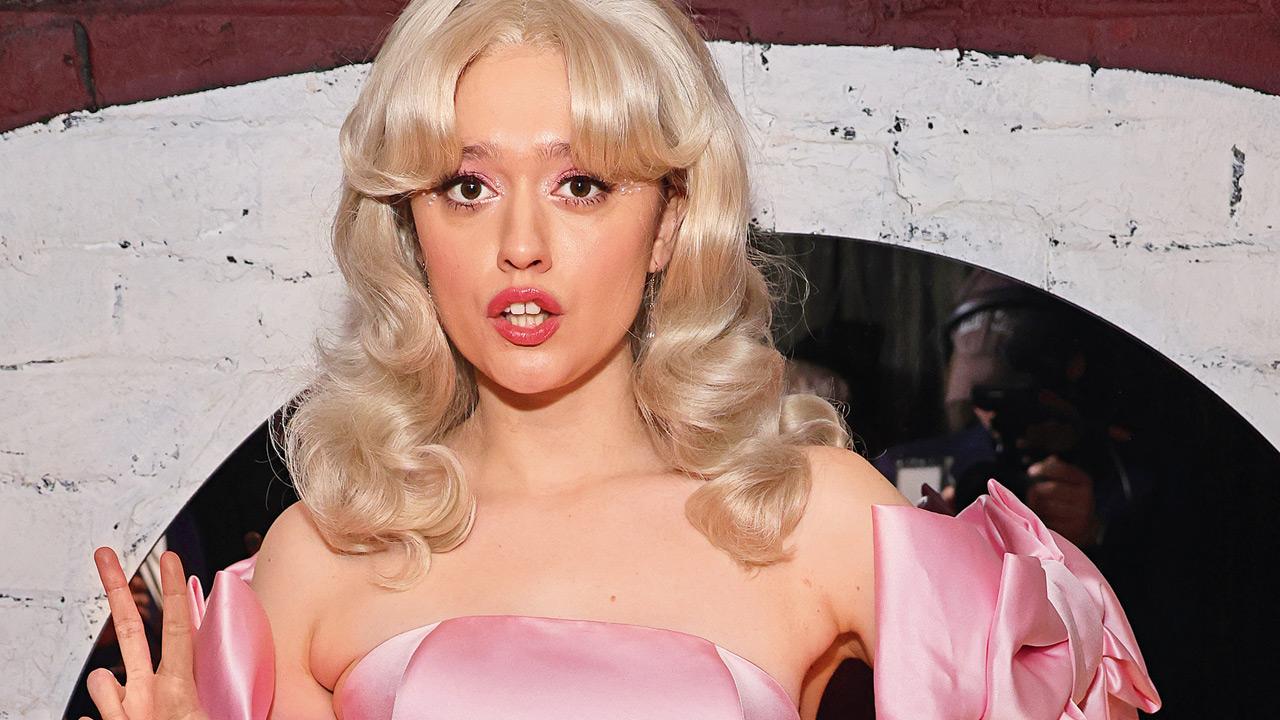We love how confident White Lotus star Aimee Lou Wood is about her smile. “It makes us feel like we’re not alone,” say other women who have grown to love their quirky teeth after years of being bullied over it

Pic/Getty Images
In an Instagram age of flawless, perfect smiles, we filter ourselves to death for the sake of perception. Dental correction is part of this and is big business, but a silent rebellion nevertheless brews on the side—one tooth gap at a time.
Headlining the trend is Aimee Lou Wood, the British actress from White Lotus and Sex Education, who is refreshingly herself—despite a recent Saturday Night Live sketch that mocked her, which she termed “mean and unfunny”. Her choice to keep her natural teeth, wonky and all, has made people across the globe feel seen. In India, the sentiment is slowly catching on where weird smiles aren’t weird at all.

For Gehana Dassani, her wacky teeth add character to her face, just as in comic books where every character has their own niche quality which makes them stand out. PIC COURTESY/GEHANA DASSANI
Gehana Dassani, a 21-year old visual communications student from Ahmedabad, originally from Pune, says she has had “rabbit teeth” since childhood. “My mom used to tell me not to push my tongue on my gums or my teeth would come out weird—but they still did,” she says, flashing her smile. Over time, comments from relatives made her conscious. “They’d say ‘You look perfect... but the teeth’—and I’d stop smiling in pictures.”
However, college changed that. People stopped caring. Dassani says she hasn’t been told a single thing about her teeth in the past two years. “There was a time I thought of braces, but I was scared I’d be forced into it. And needles? No thanks.”
She now sees her teeth as part of her identity. “Society will keep on setting standards that they make up and move on, she says. “Before you have to change anything about yourself, it is important to know why. Is it because it makes you uncomfortable or is it other people, society?” In comic books, every character has its own niche quality which makes you stand out of the crowd. This is my thing, my teeth. It adds character,” she asserts.

Madhuri Banerjee remembers the times she used to get bullied for her teeth, weight and curly hair. PIC COURTESY/ MADHURI BANERJEE
Author Madhuri Banerjee, 49, has a similar story—but from another era. “In college, no one really spoke about teeth. It was more about being fair, thin, or pretty,” she says. “You could get away with flaws if you fit the body image.”
She had braces at 11 for lockjaw, but her buck teeth stayed. “I’ve always been bullied for my teeth, weight, and curly hair—the trifecta of not having a boyfriend,” she laughs. “Even now, I’m conscious about smiling in photos. Not in real life, but on social media. That’s where the judging happens.” Not changing for anyone, she believes her flaws are what makes her memorable. “My smile exists, and that’s enough. It’s society’s perception that needs fixing, not my teeth.”
Dr Rajesh Koppikar, consultant dentist at Kokilaben Hospital, sees “the classic front gapped-teeth” often. “And honestly, it’s not even a bad thing. I tell patients—why change something that looks good?”

Aimee Lou Wood
Correction isn’t necessary unless there’s a health issue, such as improper chewing, jaw pain, or cleaning difficulties, he says. “If one has slightly yellow teeth, it’s not a health issue. But if teeth are yellow due to deposits or stains they need to be cleaned. Similarly when you have buck teeth due to tongue thrusting, you might need correction.” Still, most patients don’t walk in saying ‘I love my teeth and I want to keep them’. Body positivity in dentistry hasn’t quite arrived here. It’s always, ‘My smile’s not good enough.’ And that pressure starts early, often from family,” he adds.
As someone who has never seen a dentist, Dassani is okay with her teeth staying the way they are. “If I go and they say it’s medically necessary, I’ll consider it. But I’ve stopped seeing it as a flaw.”
Banerjee agrees, but adds a layer: “If it really affects your mental health, go ahead. But fix your self-worth first, not just your smile. Ask why you want to change—because of society or because of yourself?”
Both women agree on one thing—representation matters. “When I see someone like Aimee on screen, it reminds me I’m not alone,” says Dassani. “And I still get compliments on my smile—it makes me feel good. Normal teeth are fine, but mine make me stand out.”
So is society more accepting today? Banerjee isn’t so sure. “We’re still in that ’80s headspace—perfect is still in. But your inner confidence will come through within you, whether or not you get work done on your body. And that’s magnetic.”

“Body positivity in dentistry isn’t quite there yet,” Dr Koppikar states. PIC COURTESY/ DR RAJESH KOPPIKAR
Dr Koppikar says he sometimes advises patients against braces. “If you’ve lived 30 years with a little gap and it hasn’t bothered you, why now? Unless it’s affecting your oral health or your self-confidence, you don’t need to fix it.”
Teeth have become more than tools to chew with—they’re aesthetic, expressive, even political. Whether someone embraces their overbite or books that orthodontist appointment, it’s personal. The key is agency. As Dassani puts it, “We’re all just trying to be okay in our own skin—or our own smile.”
 Subscribe today by clicking the link and stay updated with the latest news!" Click here!
Subscribe today by clicking the link and stay updated with the latest news!" Click here!








